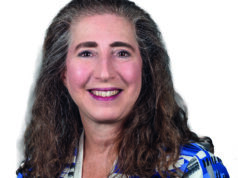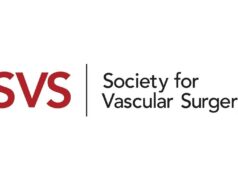
Friday morning will see Michael C. Dalsing, MD, MBA, deliver what is an annual hallmark of the VAM program—the SVS Presidential Address.
From 11:00 a.m.–12:15 p.m. in Potomac A/B, Dalsing will chart his personal journey from “small-town boy with some big dreams” to president of the SVS, as well as the history of the Society and that of the vascular surgery specialty in general, all the while delivering the salient message that “the Annual Meeting is only part of our story.”
Rural America will be the opening scene for Dalsing’s address. This is where he grew up, with parents who were “deeply affected by World War II and the Depression,” his mother— who, Dalsing will say, would have travelled widely given the chance—“convinced that education would open doors to the world.”
Against this backdrop, Dalsing moved away to attend college, majoring in biology and expecting to be a scientist, before making “potentially one of the most consequential decisions of [his] life” and taking the Medical College Admissions Test (MCAT), thus launching a long and celebrated career in vascular surgery.
Alongside his personal and professional journey to SVS president, Dalsing will deliver a sweeping history of vascular surgery, and outline how the twists and turns of certain decades were pivotal in defining vascular surgery as the distinct specialty that it is today, as well as some of the challenges that it presently faces.
In the 1940s, he will say, vascular surgery was “coming of age.” In the 1970s and early 1980s, training, certification, and defining the specialty took “center stage,” and the endovascular revolution of the 1990s and 2000s, he will continue, saw a vascular surgery field that was “changing fast.”
The president, who is professor emeritus in the Division of Vascular Surgery at Indiana University School of Medicine in Indianapolis, will reflect on his current position within the vascular surgery field, paying honorable mention a “long list” of individuals who have influenced his career over the years. He will also describe the “immense joy” at seeing the next generation of vascular surgery residents and fellows serve their communities as “compassionate and skilled vascular surgeons,” in addition to being “exceptional people.”
Dalsing’s talk will argue that vascular surgery is “unique” as a specialty, in that it involves the care of a patient from initial contact to the end of their life. As a result, specialists “must master several dissimilar skillsets requiring years of training.”
The specialty is, however, a “hidden gem,” Dalsing will say, which he highlights as a problem.
“In general, people do not know what we do,” meaning the specialty risks being “overlooked as a needed partner in discussions about our patients’ care.”
And this is all in the context of an aging population and its “increasing demands,” being served by a “finite” number of providers.
This is where the SVS comes in, Dalsing will state, with its role extending far beyond the calendar highlight that is VAM. “SVS is literally reinventing itself as it evolves and moves forward to integrate dozens of new innovative ideas currently under consideration for implementation. This process happens year over year. We are coming of age as a mature organization,” he will tell attendees.
And who but the SVS will advocate for the interests of vascular surgeons? Dalsing will ask. “No one!” He will stress that the SVS is a small group that “must speak with a strong and unified voice to be heard,” all in the interest of vascular patients, as well as members’ wellbeing.
“We are the champions of quality vascular care. We must embrace this role and encourage those who want to be on the vascular team,” Dalsing will say.
He will express his belief in the need to market to the general population—a seemingly “unattainable” goal by his own admission, but one he feels is the “endgame” if there is a desire to be recognized as the “undisputed champions of quality vascular care.”
He will define the scope, the added value the specialty brings, and a general impression of the players involved. The next steps? According to Dalsing, “defining the rules of engagement and tactics to be used for success” with education as a “centerpiece” of this effort.











